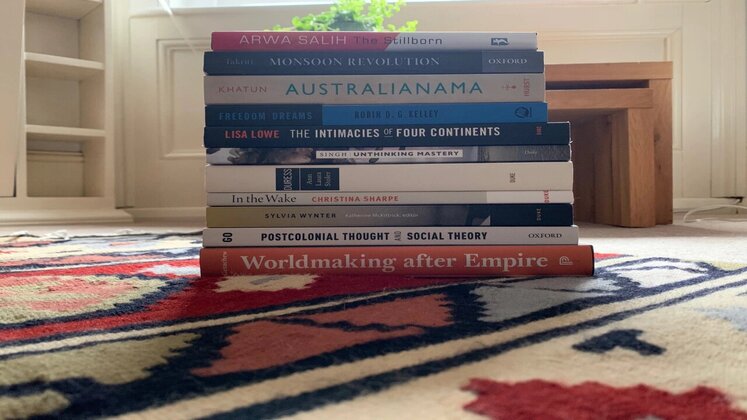 Partnerships between academia and NGOs remain rare. Following his latest post highlighting the findings of a recent InterAction report on this subject, Duncan Green considers what more can be done to overcome the barriers to collaboration that persist. Effective, mutually beneficial partnerships can indeed be forged but these should be initiated earlier than currently happens, and with greater encouragement of exchange of ideas and personnel.
Partnerships between academia and NGOs remain rare. Following his latest post highlighting the findings of a recent InterAction report on this subject, Duncan Green considers what more can be done to overcome the barriers to collaboration that persist. Effective, mutually beneficial partnerships can indeed be forged but these should be initiated earlier than currently happens, and with greater encouragement of exchange of ideas and personnel.
I attended the annual awayday of the LSE’s Department of International Development last month (I’m on its books for a day a week as a Professor in Practice). It was actually surprisingly interesting (am I allowed to say things like that?) (Yes – Ed.).
I was asked to talk about how academia can do better in forging partnerships with non-governmental organization (NGOs). It’s an oldie-but-goodie, and I’ve written about it before (more than once), but I think the discussion got a bit further this time.
First, the partnerships don’t happen nearly enough. Looking out of the windows of our Thames-side meeting room, I could see that the Department for International Development, Christian Aid, CAFOD, Save the Children and the Overseas Development Institute were all within a mile or two of one another, constituting a London cluster on aid and development that is both productive and resilient (and a lot of fun). Yet the awayday stayed firmly within the academic comfort zone of teaching and research, and even its discussion of partnerships largely concerned itself with other academic departments (mostly within the sprawling LSE landscape).
 Image credit: Putting The Puzzle Together by Ken Teegardin. This work is licensed under a CC BY-SA 2.0 license.
Image credit: Putting The Puzzle Together by Ken Teegardin. This work is licensed under a CC BY-SA 2.0 license.
Yet the case for partnership with NGOs is actually very strong. NGOs bring presence on the ground (either through being operational or having long term local partners) and communications skills (not always academics’ strong point). Academia contributes research smarts and credibility, and a long term, reflective lens that frenetic activism often lacks. I blogged recently on a good InterAction report on how academics and the third sector can work together to influence policy and practice – an increasingly important demand from government when funding research.
But what dawned on me during the discussion is that, if anything, NGOs and academia are too complementary. There is so little overlap between them that it is often difficult to team up. Some examples:
- Timescale – NGOs’ focus is urgent, immediate and often in response to events. Academics work to a different rhythm, both in terms of the issues, and the way they respond to them. When we got some research funding with the Institute of Development Studies to explore food price volatility it was at the top of our advocacy agenda, but food prices calmed down, the campaigns spotlight moved on, and the resulting research, though really interesting, struggled to connect with the rest of Oxfam
- “So what?”s – NGOs are seldom interested in knowledge for its own sake. It’s a vehicle to change the world. So research that sheds light but generates little heat is not greatly valued. Even words like ‘research’ mean different things to NGOs and academics (what NGOs do is often more like evidence-based narrative than primary research). Two-handed academics (“on the one hand; on the other”) get frustrated with one-handed (“finger wagging”) activists and vice versa. That easily tips over into mutual disrespect.
Research is very underfunded in NGOs and is distributed across organizations. At Oxfam GB, the policy research team, led by the wonderful Irene Guijt, is behind all that high impact stuff on inequality for Davos, and a pile of other impressive work, but has just eight staff. There are lots of smart researchers working elsewhere within Oxfam – on programme monitoring, evaluation, learning, or doing research as part of their advocacy roles – but even then, by one calculation, across the whole of Oxfam International research staff amount to just 7% of communications staff (a cynic might say we prize talking 14 times more than thinking…). Hardly surprising then that it is really hard to engage with academics, even if it’s just to make meetings to explore options – there are just so many of them (200,000 in UK universities alone, according to InterAction) and so few of us!
What to do?
Talk to each other early on. Avoid the opposite – academics who wait until they’ve written the paper before looking for an NGO to help with their dissemination, or NGOs (or donors) who decide their policy line then commission an academic to do policy-based evidence making.
Create research ideas together. I really like the InterAction report’s call for funding of ‘knowledge brokers’ and ‘embedded gateways’ capable of (mixed metaphor alert) bridging the divide between scholars and activists. But donors could also help by encouraging collaboration through 50/50 funding, half for action and half for research – at the moment they seem to fund one or the other, which misses the chance to foster links.
Try and reconcile the timescale problem so that, for example, PhD students can build their work around the needs and activities of a given NGO. We had a useful experience of this when Tom Goodfellow (now at Sheffield University) helped us think through our work on urbanization while doing his PhD on the same topic, but we are seldom approached at this level.
At the moment, contact and conversations are ad hoc and rather superficial. What would it look like to have a mutual capacity-building strategy, where NGOs strengthen academics and vice versa? Ideas could include:
- Reflection spaces in academia where practitioners can undergo decompression for a few weeks or months, and be helped to reflect and write up their experiences
- More exchange of personnel – like my Professor in Practice role at LSE – that could go both ways. What about some Oxfam fellows, who could help guide our thinking in return for access to our work?
Unless we expand the area of overlap in the Venn diagram between academia and NGOs, I fear the relationship will remain frustrating and unproductive.
Oh, and academics, please note: just looking at NGOs as a convenient place to dump your students doesn’t work!
Thoughts?
This piece originally appeared on the author’s personal blog and is reposted with permission.
Note: This article gives the views of the author, and not the position of the LSE Impact Blog, nor of the London School of Economics. Please review our comments policy if you have any concerns on posting a comment below.
About the author
Duncan Green is Senior Strategic Adviser for Oxfam GB and Professor in Practice in the Department of International Development at LSE. He runs the From Poverty to Power blog and is author of the book How Change Happens (OUP, October 2016). He can be found on twitter @fp2p.








I’m part of one of the NGO in the Philippines and your tips are very helpful. I’m working in NGO because one of my desire is to make every child smile and reach their potential. Thank you!